Tengshi should 'move downwards'
![]() 09/25 2024
09/25 2024
![]() 586
586
The urgent task is not 'reaching higher', but 'seeking downwards'.
On September 14, BYD announced its acquisition of a 10% stake in Denza from Mercedes-Benz, achieving full ownership of the brand. As a result, Denza officially became a wholly-owned subsidiary of BYD. According to Tianyancha, the subscribed amount for this 10% stake exceeded 700 million yuan.
Upon hearing this news, most people expected it. However, after BYD fully acquired Denza, a question was repeatedly raised: 'With Mercedes-Benz gone, where does Denza's path to higher ground lie?'
After all, Wang Chuanfu, the chairman of BYD, once said, 'Denza serves as a bridge, connecting BYD's Dynasty and Ocean series at the lower end and the individualistic brand FANGZHENGBAO and high-end brand YANGWANG at the upper end.' In other words, Denza plays a crucial role in BYD's layout in the premium market.
Therefore, it is understandable that concerns arose that Denza's path to higher ground might be hindered by the departure of Mercedes-Benz.
However, based on BYD's market layout across its various brands and Denza's current market performance of its three models, the urgent task is not 'reaching higher', but 'seeking downwards'.
What do I mean by that?
Ascending is Wang Chuanfu's obsession
Ascending is Wang Chuanfu's obsession and the raison d'être of Denza's existence.
To pave this path, BYD and Mercedes-Benz jointly incubated Denza for 14 years, with trials, failures, and restarts, until Mercedes-Benz completely withdrew and BYD took full control.
The story began in 2011, when the Chinese automotive market was dominated by joint ventures. At that time, Chinese auto brands, including BYD, Chery, Geely, and Great Wall, were all focused on one thing: 'breaking through the 150,000 yuan ceiling and ascending in the market.'
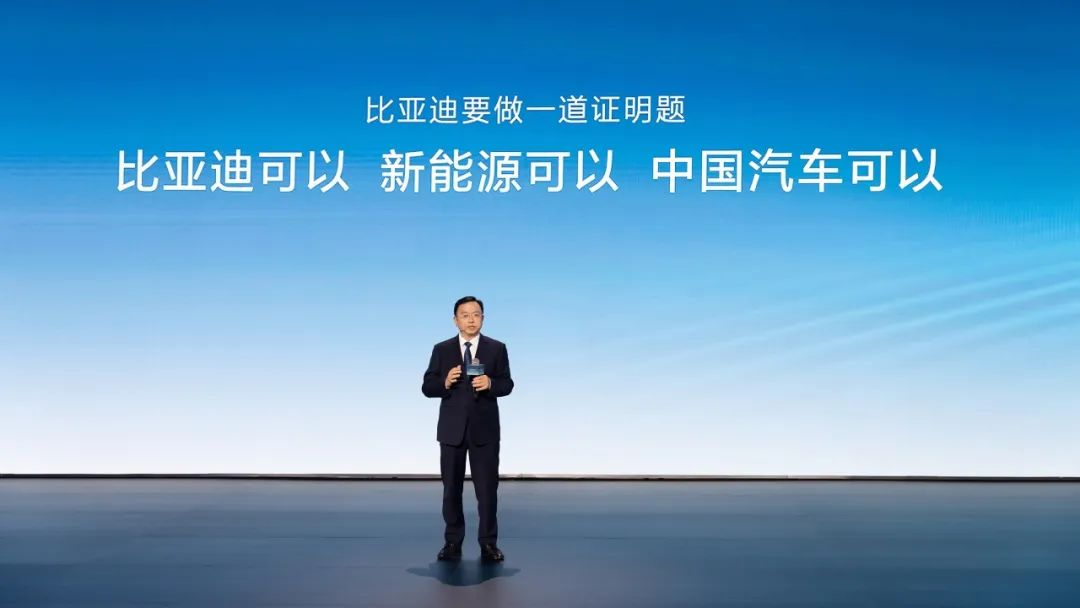
Ten years can make a big difference. A decade ago, many brands struggled to cross the 150,000 yuan threshold, with many failing. At that time, the bold BYD and Mercedes-Benz chose to undertake a 'proof question' by forming a joint venture with each holding 50% of the shares.
This led to the establishment of Denza with two goals: to become China's first new-energy vehicle maker and to leverage Mercedes-Benz's prestige to help BYD ascend in the new energy market.
Although Wang Chuanfu repeatedly emphasized that 'Denza stands on the shoulders of giants,' there were still questions about whether the market needed another new auto brand.
However, most people were optimistic about Denza at that time. BYD's battery technology and Daimler's luxury heritage combined to create a high-end new energy brand that could be described as 'a young prodigy.'
The industry expected Denza to write a short story in the field of electric vehicles with its first-mover advantage. Unfortunately, the pen failed to stir the waters on paper.
Before a new thing succeeds, it must inevitably go through the processes of 'exploration' and 'failure.' Denza was no exception, as the times were sharp as a knife, and the young prodigy's talents remained hidden.
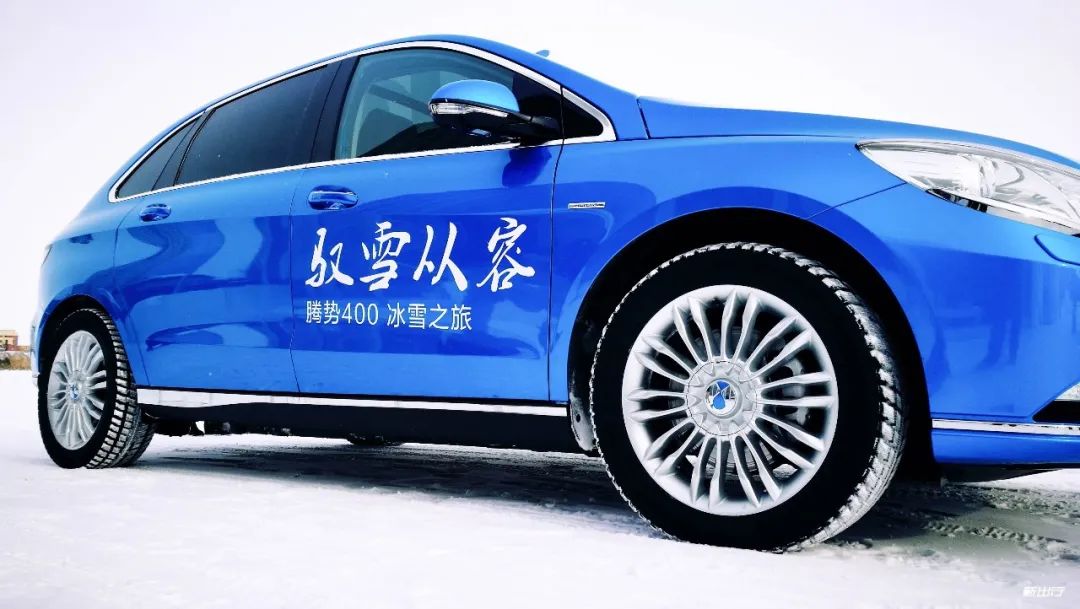
In 2014, Denza's first electric vehicle model was launched, but it was based on the Mercedes-Benz B200 platform with a range of 300km and a price tag exceeding 300,000 yuan. Given that the gasoline-powered car market was still dominant at the time, the first mass-produced model, the Denza 300, sold fewer than 30,000 units from its launch until 2021.
Subsequently, Denza launched the Denza 400 and Denza 500 models. In 2019, Denza unveiled its all-new electric concept vehicle, the Concept X, followed by the Denza X, a new pure electric/plug-in hybrid SUV based on the concept car's design, in November of the same year.
This vehicle marked a crucial turning point for the Denza brand and served as a precursor to BYD and Mercedes-Benz's eventual divergence. As BYD insisted on pursuing both pure electric and plug-in hybrid technologies, differences arose with Mercedes-Benz.
If the Denza X had achieved notable success in the market, perhaps the cooperation between BYD and Mercedes-Benz could have lasted longer. Unfortunately, this was not the case. At the time, the market viewed the Denza X as a rebadged BYD Tang EV600 with some Mercedes-Benz design elements, leading to limited market acceptance.
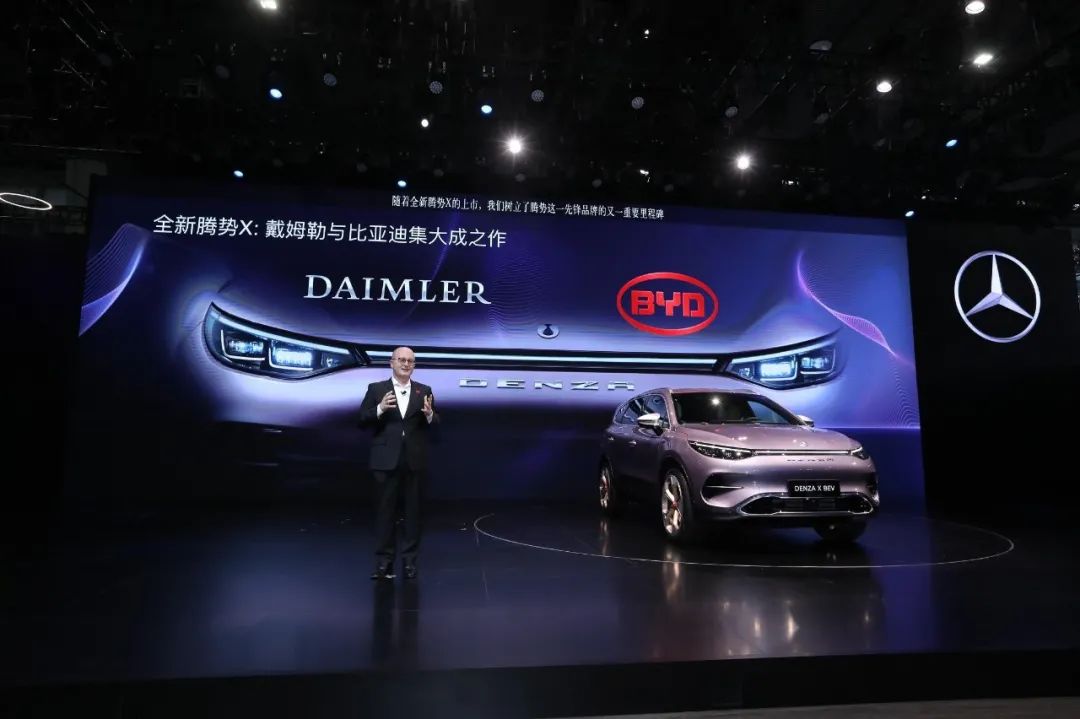
After struggling for a decade, Denza's cumulative sales reached only 15,000 units, representing a disappointing start. Furthermore, the brand accumulated losses of 5.2 billion yuan, with long-term investments failing to yield commensurate returns, leaving both shareholders disillusioned. This situation echoes the ancient Chinese essay 'The Sorrow of Zhong Yong,' which warns that even a young prodigy can eventually become mediocre.
For Mercedes-Benz, which was still hesitating in the electric vehicle market, bearing the losses of Denza was a heavy burden, especially given its perceived lack of necessity. As a result, Daimler withdrew from the joint venture. In 2021, Mercedes-Benz decided to terminate the Denza joint venture project.
At the end of 2021, Mercedes-Benz and BYD signed a new agreement, with Mercedes-Benz transferring its shares in Denza, changing the ownership ratio from 50:50 to 1:9. BYD stated during a conference call at the time that it would lead the strategic development of Denza, with Mercedes-Benz providing support.
The departure of the 'giant' not only marked the end of Denza's decade-long history under Daimler's leadership but also signified BYD's absolute control over the brand.
A new beginning.
Restarting Denza with the D9
Looking back on Denza's decade-long journey, Wang Chuanfu described it as 'arduous and tortuous.' As an explorer in a new market, the hardships were indeed difficult to convey to others.
Unfortunately, Denza was born at the wrong time, missing an entire product cycle as Tesla gained momentum. Denza is considered one of Wang Chuanfu's rare 'misses.'
Wang Chuanfu lamented the difficulties along the way, stating that Denza had tried various strategies but struggled to establish itself and succeed in the market. 'By the end of 2021, we had accumulated losses of nearly 5 billion yuan over eight years,' he said.

While Wang Chuanfu preferred not to dwell on the hardships, Zhao Changjiang, General Manager of Denza, was more forthcoming. He said, 'During the 50:50 joint venture era between BYD and Mercedes-Benz, decision-making efficiency was low, and there was a lack of accountability for the brand.'
However, dwelling on the past is unnecessary. What matters now is how Denza can embark on its path to higher ground.
After BYD took control of 90% of Denza's shares, it decided not to let the brand stagnate. Restarting became the main theme for Denza.
At the time, there were doubts about why BYD chose to restart Denza, a brand that had struggled for over a decade and was still considered the 'least visible high-end new energy brand.'
BYD had no other choice. In the low- to mid-end new energy market, BYD had established itself through years of effort, pursuing both hybrid and pure electric technologies. With a comprehensive self-research system in batteries, electric controls, and even chips, BYD was firmly entrenched. As brands like Lantu and Zeekr ventured into the high-end new energy market, BYD needed a pioneer for high-end exploration.
High-end products can enhance brand positioning and generate better profits, which was BYD's current gap. Restarting Denza was imperative and, in a way, the fastest way to occupy a high-end position.
Determined to move forward, BYD embarked on a comprehensive reform of Denza, encompassing technological innovation, product updates, and independent operating channels. However, careful consideration was needed to determine where the first cut should be made.

BYD's strategy was to relaunch Denza with its first product in the electric MPV market, a blue ocean. The arrival of the Denza D9 was seen as the beginning of Denza's turnaround.
With technologies like the e-platform 3.0, DM-i super hybrid system, and 'sandwich' structured blade battery, the Denza D9 had a solid foundation. As Denza's first step back into the market, the D9 brought new variables to the table.
Indeed, the model lived up to expectations. In the first full month of delivery after its launch, the Denza D9 delivered 3,451 units, with an average transaction price of 415,000 yuan. In 2023, the Denza D9 sold a total of 119,182 units, overtaking the dominant Buick GL8 to become the sales champion in China's MPV market.
A soaring turnaround was underway.
'Denza's phased success prompts us to reflect on how to steadily advance in the field of new energy luxury vehicles and achieve more sustainable development,' Wang Chuanfu mused.

Wang Chuanfu chose 'technology-driven luxury' as Denza's unique competitive advantage. 'Traditional luxury brands often rely on brand recognition, while the core competitiveness of new energy luxury brands lies in technology,' he explained.
In terms of product lineup, Denza plans to create five series based on the English letters D, E, N, Z, and A, with D representing MPVs, N representing SUVs, and Z representing sedans.
With this layout, Denza's chessboard began to take shape. However, Wang Chuanfu's obsession with ascending to higher ground was not fully realized.
Lacking the ability to write a novel
In 2015, Yin Tongyue, the chairman of Chery, said, 'We cannot just have the ability to write short stories; we must also have the ability to write a masterpiece like Dream of the Red Chamber.'
Creating a good product is akin to writing a short story, which Denza has accomplished with the D9, putting it 'in the game.' However, the ultimate test lies in whether it has the ability to write a novel. In the cases of the N7 and N8 models, Denza has not yet demonstrated this capability.
After the success of the Denza D9, Denza launched its first SUV model, the Denza N7. Judging from its specifications, Denza was determined to succeed with the N7.
With cutting-edge technologies like Cloud Suspension - A air suspension, 'Divine Eye' intelligent driving, and 'Dual-Gun Fast Charging,' the N7 generated plenty of buzz. According to Denza's data, pre-orders for the N7 exceeded 10,000 within a week of its blind booking launch and surpassed 20,000 within a month. Upon its launch, the N7 received 11,687 confirmed orders within 24 hours.
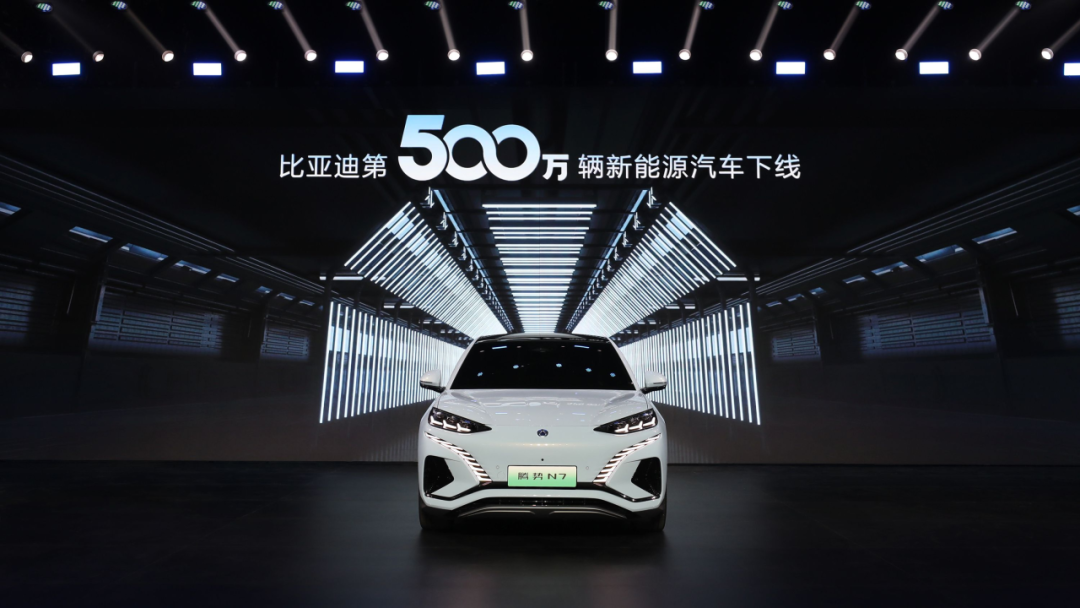
In terms of orders, the Denza N7 had a promising start. At that time, Zhao Changjiang even took to Weibo to challenge Elon Musk, stating, 'You will face serious challenges from intelligent driving assistance systems and models in 2024, such as the Denza N7, which will change the market landscape and surpass the Y model!'
However, the subsequent story of the N7 did not unfold as expected. Rather than soaring upwards, its sales trajectory led to an awkward position. The N7's sales performance was disappointing, with monthly sales peaking at just under 2,100 units and dipping as low as a few hundred units.
The Denza N7, equipped with cutting-edge technologies, failed to win over consumers for two main reasons.
Firstly, the price was too high. With a price range of 301,800 to 379,800 yuan, many potential buyers were deterred. Secondly, in this price range, the N7 faced stiff competition from models like the Tesla Model Y, ZEEKR 001, LIXIANG ONE and L9, and NIO ES6, which had already established themselves in the market. Without a first-mover advantage and unable to catch up later, the N7 struggled.
Zhao Changjiang acknowledged on Weibo that while the Denza N7 was excellent, its lack of name recognition was a drawback. Denza was aware of the problem.
Therefore, when the new Denza N7 was officially launched this year, its starting price was reduced by over 60,000 yuan compared to the previous model, dropping to just 239,800 yuan. However, this price range was already occupied by models like the WENDE M7, Xpeng G9, and IM Motor LS6, making it challenging for the N7 to gain a foothold.
With a crowded market segment and the Denza N7's dream of success proving elusive, Denza introduced the N8. The launch of the Denza N8 expanded the brand's model matrix and addressed product attribute deficiencies.
As Denza's hybrid model, the N8 failed to continue BYD's hybrid success. The issue lay in its low cost-effectiveness, with both its configuration and pricing overlapping significantly with the Tang DM-p. Consumers concluded, 'Buying the N8 is not as good as buying the Tang.'
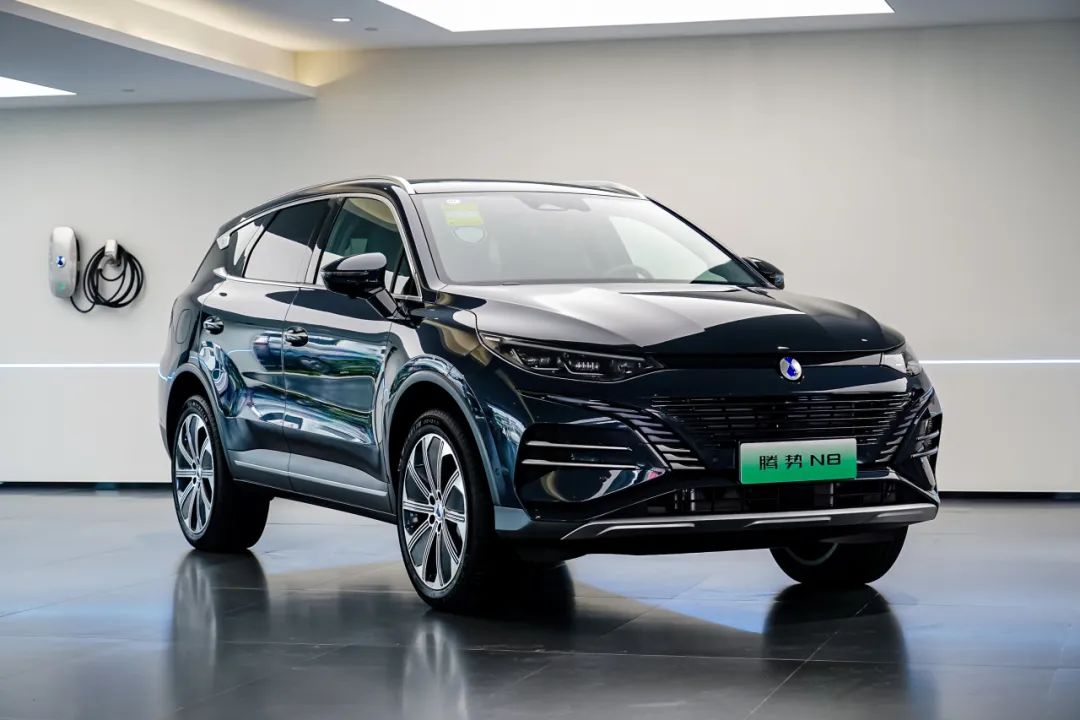
The Denza N8 failed to make an impact, with cumulative sales failing to reach 3,000 units since its launch. The unsuccessful foray into the SUV market served as a wake-up call for Denza and highlighted an unresolved issue.
In Wang Chuanfu's brand positioning for Denza, there is an unavoidable problem. Serving as a bridge between BYD's Dynasty and Ocean series at the lower end and its individualistic brand FANGZHENGBAO and high-end brand YANGWANG at the upper end is both a wish and a constraint. Denza's survival space is squeezed between BYD's product lines and the competition from brands like NIO, XPeng, and Li Auto.
Securing a foothold in the 'mid-market' segments, specifically the 200,000-300,000 yuan and 300,000-400,000 yuan ranges, has become Denza's top priority. Market analysts believe that 'if Denza cannot establish a solid footing in the 200,000-300,000 yuan market, relying solely on the D9 model will be like building a castle in the air with an unstable foundation.'
In Wang Chuanfu's vision, Denza serves as a bridge, connecting BYD's Dynasty and Ocean series at the lower end and the individualistic brand FANGZHENGBAO and high-end brand YANGWANG at the upper end. However, given that BYD's Dynasty and Ocean series, which account for the bulk of its sales, focus on the market below 200,000 yuan, the company has yet to make a significant impact in the market above this threshold.
Whether it is BYD's models or Denza's that will break through the 200,000 yuan barrier and serve as a bridge between different market segments is crucial.
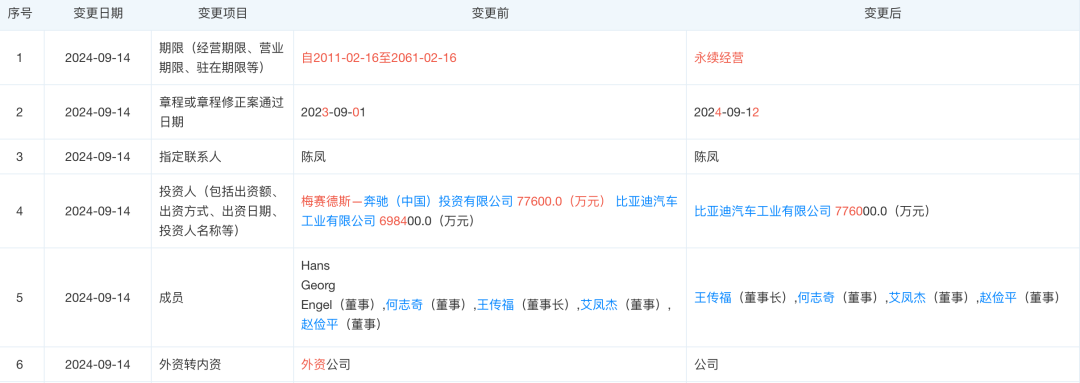
In BYD's product layout, some models are also deployed in the 200,000-300,000 yuan market. However, according to existing data, once the price of a BYD model exceeds 200,000 yuan, it becomes difficult to win the long-term favor of consumers, making it challenging to target higher-end markets.
Therefore, the industry believes that it is relatively advantageous for Wang Chuanfu's obsession with reaching higher-end markets to be realized through Denza. Moreover, BYD has full control over Denza and holds absolute dominance.
However, for Denza, the market above 200,000 yuan represents a "downward exploration." This leads to the conclusion that Denza's urgent priority is not "reaching higher" but rather "seeking downwards."

Judging from Denza's upcoming models, it does not appear to be pursuing "seeking downwards." Recently, Denza officially launched pre-sales for its first models equipped with third-party technology, the Denza Z9 GT and Denza Z9, with price ranges from 339,800 yuan to 419,800 yuan.
With the slogan "Technology Redefines Luxury GT," Denza is determined to make a big splash in the market with its luxury electric GT models.
However, the outlook is still uncertain.
Note: Some images are sourced from the internet. If there is any infringement, please contact us for removal.








